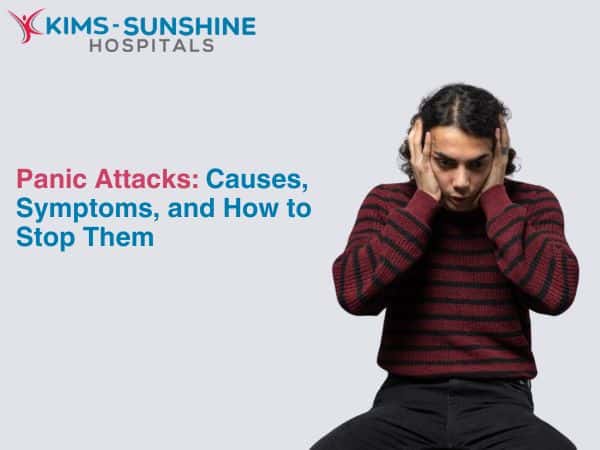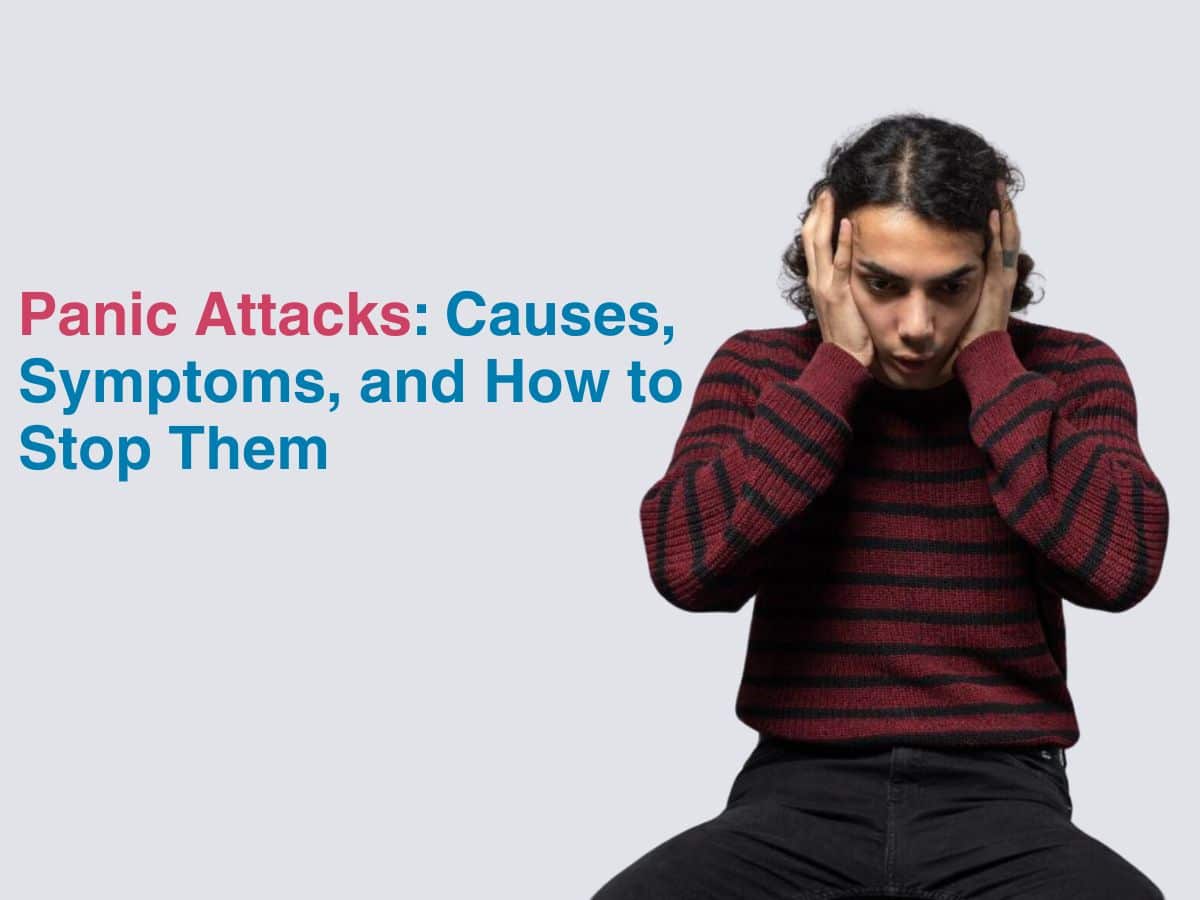
Panic Attacks: Causes, Symptoms, and How to Stop Them

Our body is a finely tuned machine that runs on a lot of different hormones to regulate our mood very minutely. Two of these hormones are named adrenaline and cortisol. Normally, we make very tiny amounts of the hormones but when we get overly stressed out about something- our body pulls out all the stops and makes massive amounts of cortisol and adrenaline. Where have we heard the term fight-or-flight before? It is the adrenaline hormone which does this. This can immensely affect our mood and our capability to think clearly in any given situation. We then resort to ‘panic mode’ where we just shut down and have symptoms like these- our heart drumming away in our ears, mouth going dry suddenly, breaking into a sweat or even having a flushed appearance. We can’t think straight which freaks us out even more. We don’t really know why this happens with few individuals and not all of us. But this can totally be managed with therapy and some other approaches that you can begin with immediately.
How Stress And Anxiety Trigger Panic Attacks
Getting stressed out about work or meeting deadlines and feeling anxious about everything can be a major trigger for panic attacks. Any experience can leave an indelible scar on our psyche forever and this is how our brain will remember anything remotely associated with that event- intense fear and panic. Some very common examples include- worrying about your position at work and its status, a promotion not going through, home life being hard, having someone to take care of at home, important events like a wedding or having children or taking strict financial decisions among so many others. Any one of these can make you feel helpless and anxious. Keep worrying and you are setting yourself up for a major panic attack.
How To Calm Down During A Panic Attack In Public
Now you know what some major triggers can be. But what can you actually do when you can feel a panic attack coming? Try any of the following approaches and see what works best for you-
- Taking good long deep breaths and maintaining a count- like counting till 10 before you exhale is a good place to start. It will force your brain to change gear and think of numbers.
- Many of us think that panic attacks are not manageable. Wrong! You need to make your brain understand that it is nothing huge and it will pass in some time. You should be accepting of it and give yourself some time and space to work through it all.
- You can also begin by flexing the muscles in the lower half of your body and slowly work your way up.
- Meditation is good. But if the idea of sitting quiet with your thoughts freaks you out, don’t worry. Guided meditation is also a great choice.
- These are just some examples but you can find some other task that is fairly repetitive and requires intense concentration- which will force your brain to put in the right kind of work needed to get you feeling better soon.
- You can do this all better if you go to a quieter spot.
- Practising mindfulness techniques is also good.
- If the attacks affect your quality of life greatly, you could talk to a doctor and get some medication prescribed.
Conclusion
Panic attacks can strike anyone at any point in time. The unexpectedness can play a huge role in how we respond to it. Telling your friend about it is a good option as they will also help you avoid triggers. There are many ways in which you can try to cope. We have listed out just a few possibilities for you to consider. Ultimately, it is important to understand that panic attacks happen and help is around the corner.
Frequently Asked Questions
What are the most common triggers for panic attacks?
What are the physical and emotional symptoms of a panic attack?
Can breathing exercises help stop panic attacks, and how do they work?
What long-term treatments are available for managing panic disorders?
When should you seek professional help for recurring panic attacks?

Dr. Shiwani Kohli
M.Phil (Clinical Psychology)
PhD (Research Scholar)
Masters (Clinical Psychology)
PG Diploma (Counselling Psychology)
Clinical Psychologist
Subscribe to our Newsletter






